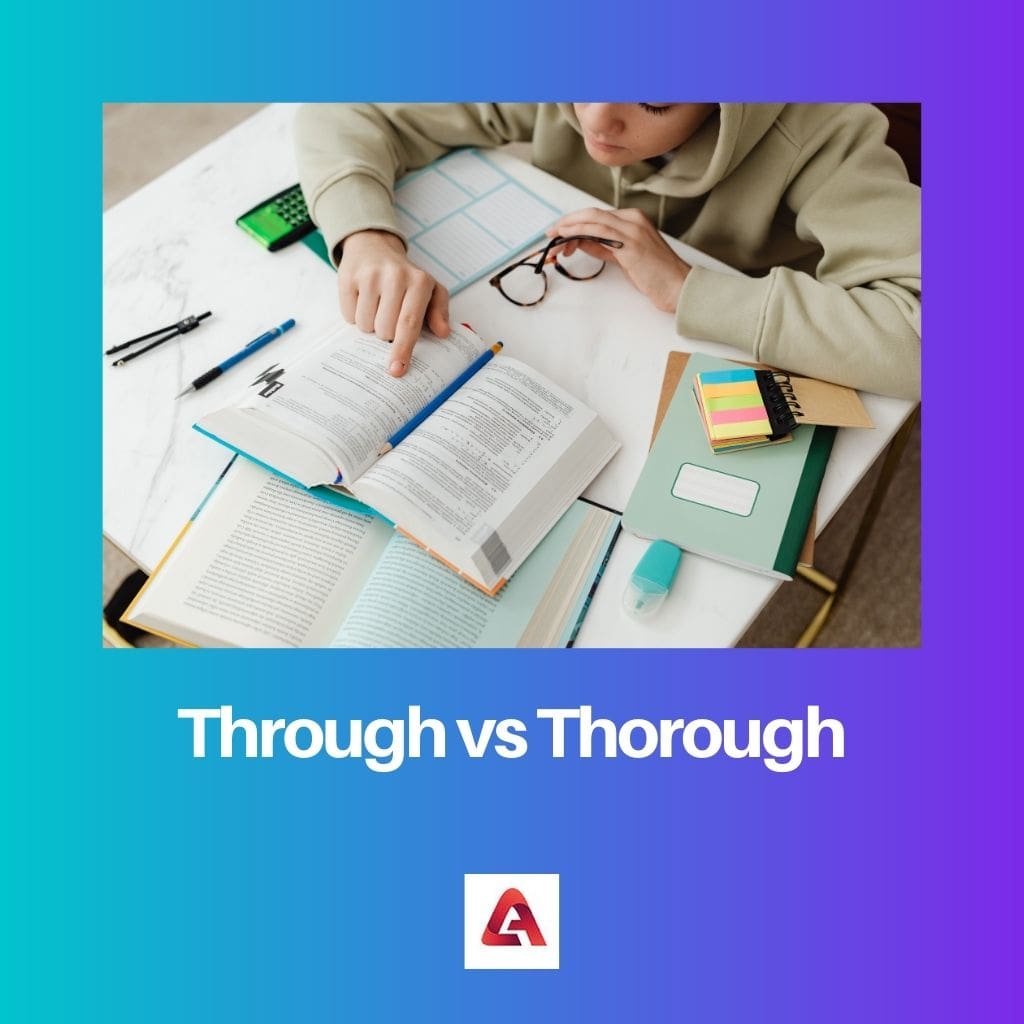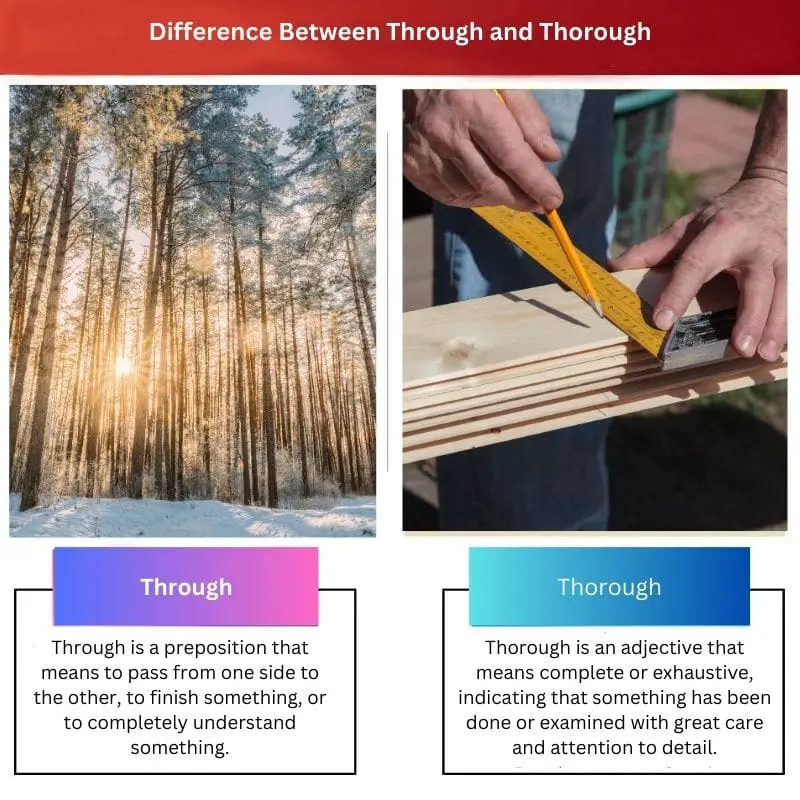The English language comprises specific sets of words which are confusing to use. Through and thorough are two such terms spelt and pronounced almost simultaneously.
This similarity tends to puzzle many people; as a result, these two words are interchangeably used by many.
Despite the little similarities, the two words are highly unlike each other.
Key Takeaways
- “Through” is a preposition that indicates movement from one side of something to the other or the entire duration of an event. At the same time, “thorough” is an adjective describing something comprehensive or complete.
- “Through” describes spatial or temporal relationships, while “thorough” describes the quality of work, research, or examination.
- “Through” can also be used as an adverb to indicate completion, whereas “thorough” does not have an adverbial form.
Through vs Thorough
Through is a preposition that means to pass from one side to the other, to finish something, or to completely understand something. Thorough is an adjective that means complete or exhaustive, indicating that something has been done or examined with great care and attention to detail.

The dissimilarities between the two tend to change the meaning of the sentence in which the words are used.
Comparison Table
| Parameter of Comparison | Through | Thorough |
|---|---|---|
| Spelling | Through | Thorough- it has an O between h and r |
| Pronunciation | Throo –Throu | Thur-oh (Thor-ough) |
| Grammatical variations | 3 | 1 |
| Date of Origin | Around 12th century | Around the 15th century- (the variations that originated before that are now no longer used) |
| The root of the word | Part of classic English but has roots in German and Dutch language | Part of classic English |
When to Use Through?
The word ‘through’ is a member of three parts of speech. It is used as a preposition, adjective and adverb all at the same time.
The use of the word within a sentence determines its meaning, along with defining the set of speech it represents.
As a preposition ‘through’ explains the situation:
- To indicate the result of an action or event- The firm lost the customer through delays in supplies.
- To point out the use of a mediator to achieve something- I got appointed through my cousin, or this is my share of inheritance through my grandmother.
- At times through means ‘due to’-She passed through her previous knowledge.
As an adjective through reflects multiple meanings:
- At specific points, it means completion or conclusion of a particular stage – through the house job phase.
- Through also means ascending further- Through stage seven of the game.
- It is commonly used to describe the traffic and location of something- through a busy lane.
Through is mainly used as an Adverb of place and time:
- Indicating the distance between the two ends- they made their way through the crowd to reach the man lying on the floor.
- Indicate the fulfilment of a task or comprehend the time served for the purpose- The internship will continue through the summers.
The spelling of through has now been shortened to thru. Yet the official spelling remains the former one, while the latter has been declared a slang version to be used for unceremonious purposes.

When to Use Thorough?
Initially, thorough also had a diverse grammatical background; but in modern English, it is only used as an adjective making the other two formats outdated.
Thorough as an adjective refers to the accomplishment or with great care:
- It refers to going over something in detail- He thoroughly reviewed the entire syllabus.
- Used to signify the immense attention paid to a task- The doctor made a thorough examination.
The use of thorough as a preposition and an adverb is no longer a part of the English dictionary.

Main Differences Between Through and Thorough
- The grammatical variations of through are all active, whereas for thorough, two have been declared outmoded and are no longer used in modern English.
- Through his now another spelling thru; though it is still not an official version, it is being used a lot. Thorough has no such second spelling.

- https://www.macmillandictionary.com/dictionary/british/through
- https://www.merriam-webster.com/dictionary/thorough

I appreciate this detailed explanation of the differences. This was informative and enjoyable to read.
I had no idea it was this complex, great read.
Great analysis of the differences between ‘through’ and ‘thorough’
An insightful article that provides an in-depth understanding of the English language
This is so interesting. I love how this article gives a comprehensive comparison between the two words.
This article is very informative. It provides a clear explanation of grammar usage and linguistic variations
Great piece, really enjoy the detailed linguistic distinctions made here
This article presents an interesting analysis and comparison of ‘through’ and ‘thorough’.
The explanations of grammar and linguistic variations of ‘through’ versus ‘thorough’ are very helpful
The analysis provided in the article is indeed very thorough.